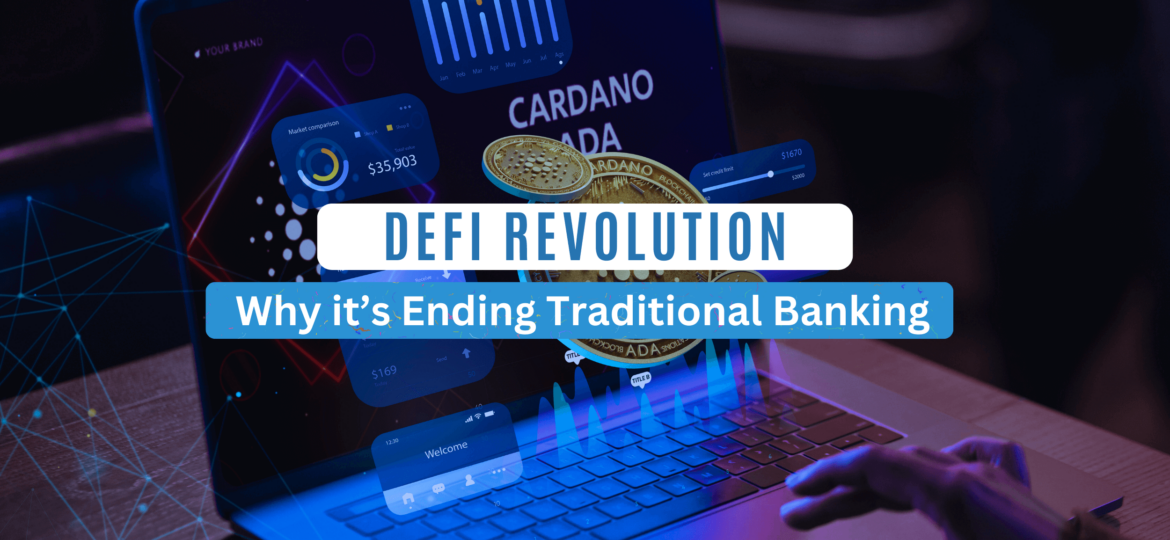What is DeFi?
It refers to financial services without intermediaries such as banks or brokers. With DeFi, you can perform various financial transactions directly, thanks to blockchain technology. Some of its use cases include lending, borrowing, and trading. The beauty of DeFi is that it gives users more control over their money. Moreover, it harnesses open-source code, making it transparent and auditable by anyone.
Benefits of DeFi
- Speed: The process becomes faster because there are no intermediaries like banks and financial institutions in DeFi transactions. Transactions can be conducted using smart contracts and blockchain technology, which makes them happen in real time or on a ‘real time basis.’
- Open Access: The fact that people can access DeFi platforms via the Internet makes for global financial inclusion. Such access makes it possible to enable people who could not have accessed formal financial services to join the financial world where they can engage in various financial activities like borrowing, lending, and trading.
- Reduced Costs: Transition costs are minimised due to the removal of third parties in DeFI. This means that users can bypass the usual high fees charged for wire transfer, currency exchange, and other financial operations. Such cost reduction enables savings to the users and can contribute to effective capital use throughout the financial market.
- Dispersal of Risk: Decentralization in DeFi minimizes the risk of failure, which is usually linked to centralized financial systems. Distributing data amongst a network of nodes reduces the risks associated with a single point of failure. It improves the system’s safety and reliability while protecting user data and assets.
In addition, DeFi makes financial transactions more transparent and auditable because they are stored in a public ledger. This transparency fosters trust among users and dispenses with the need for a central authority to authenticate transactions thereby enhancing the security and resiliency of the system against fraud and manipulation.
Decentralized lending and borrowing
One of the most popular aspects of DeFi is decentralized lending and borrowing. Through smart contracts, users can lend or borrow assets directly without needing a bank or any other intermediary.
Differences between DeFi and CeFi
Centralized Finance (CeFi) is the traditional financial system where organizations hold and control your money. In contrast, DeFi is a system where you have control over your assets and transactions without intermediaries.
Control over assets and transactions:
CeFi: In a centralized financial system, your assets are under the supervision of banks and investment firms and they handle your transactions. These institutions generally act as managers of consumer funds, transaction facilitators and providers of various financial services to consumers.
DeFi: In a decentralized financial system, individuals have direct control over their assets and can conduct peer-to-peer transactions without involving an intermediary. Through automated smart contracts and blockchain technology, users can manage their digital assets as well as engage in lending, borrowing and trading.
Arbitration and Governance:
CeFi: In this system, transactions are done by banks and other financial institutions that act as intermediaries. These intermediaries often act as central powerhouses, managing the financial sphere and speaking for the user base.
DeFi: Decentralized systems of financing involve no intermediaries through blockchain technology, using smart contracts for self-execution and transaction processing. It is an environment where a user does not need to trust any third party or central authority and transactions follow certain predefined rules and procedures.
Access and Transparency:
CeFi: Traditional financial setup may not be readily available to all, especially people in underserved and underbanked regions. Furthermore, the problem of transparency in centralized systems creates the possibility of information asymmetry and mistrust among users.
DeFi: Financial systems such as decentralized finance allow participants who can connect to the Internet from different parts of the world. Additionally, blockchain technology provides transparency that allows users to track and verify their transactions in a public ledger, increasing trust and accountability in the system.
Liquidity Pools
Liquidity pools are essentially pools of tokens locked in a smart contract. They facilitate trading by ensuring liquidity is always available.They are essentially pools of tokens that are locked in a smart contract, providing liquidity for a particular trading pair. These pools enable the seamless swapping of one token for another without the need for a centralized intermediary, such as a traditional exchange.
Decentralized and Centralized Marketplace
- Centralized Exchanges (CEXs): These are platforms controlled by a single organization. They fa cilitate trade between buyers and sellers. Example: Traditional stock exchanges.
- Decentralized Exchanges (DEXs): They operate without a central authority. Trades occur directly between users. An example would be platforms where you can swap one cryptocurrency for another.
Tips for Engaging with DeFi
- Research: Always do your research before investing in any DeFi project.
- Safety: Use hardware wallets to keep your funds safe.
- Stay Updated: The world of web3 and DeFi is rapidly evolving. Stay updated with the latest trends and technologies.
About Rezaid
Rezaid is one of the best Web3 marketing and NFT advertising agencies. At Rezaid, we see ourselves as more than just a Web3 agency – our true purpose lies in being a powerful storytelling engine that brings your vision to fruition. Every project we undertake has personal meaning to us, and creating the best possible version of what you desire is our objective. Beginning with a story and concluding with the realization of our clients’ dreams is how every one of our projects unfolds, thanks to Team Rezaid’s combined efforts.

